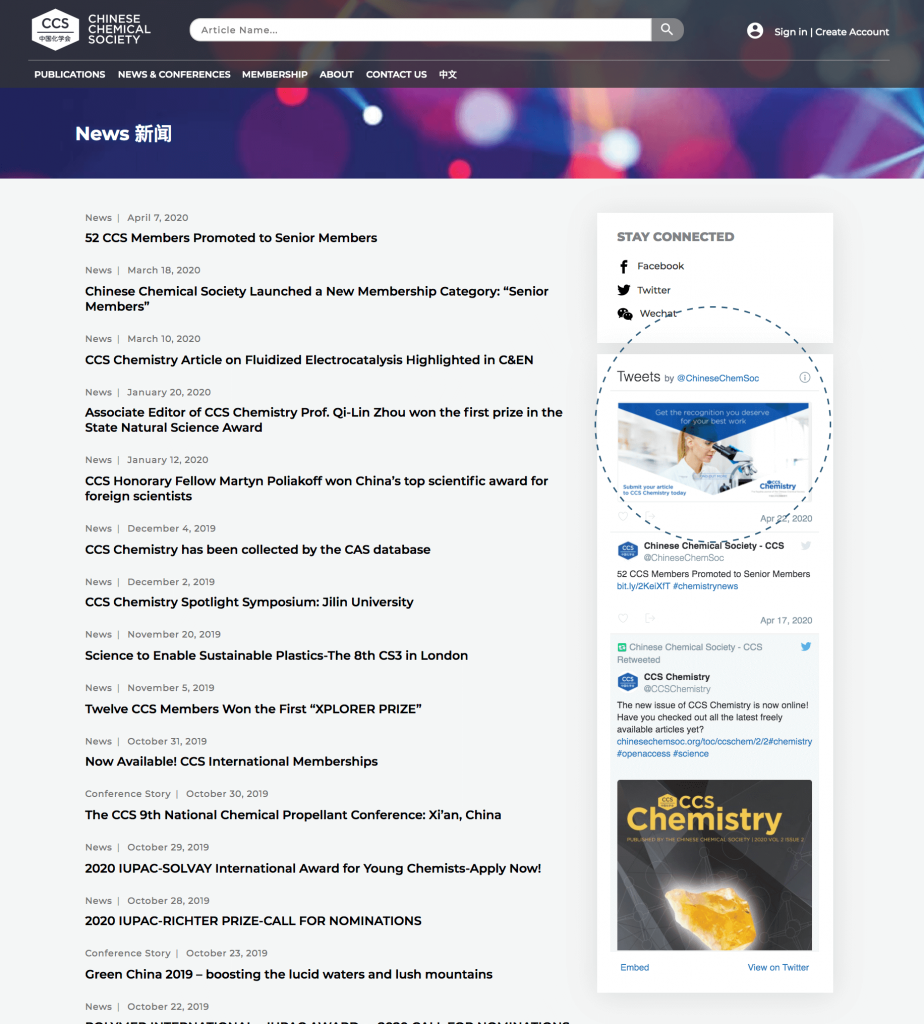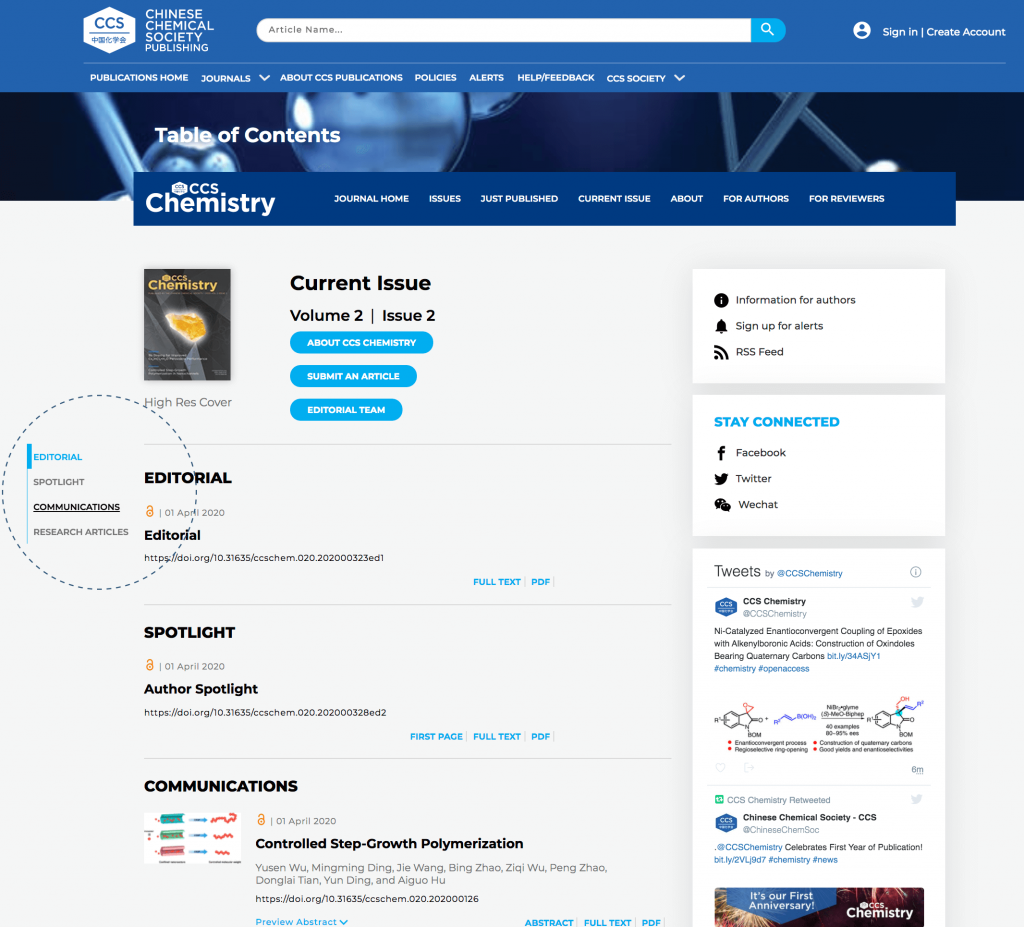Chinese Publisher Increases International Reach and Influence

Background
Founded in 1932, the Chinese Chemical Society (CCS) has more than 65,000 individual members and 151 organizational members. In addition to CCS Chemistry, its flagship journal, CCS co-publishes 26 academic journals in Chinese and English with a number of Chinese institutions and organizations.
Challenge
The percentage of articles by Chinese researchers published in all chemistry journals has nearly tripled since 2000 and now exceeds the number published by American authors. But research published in Chinese journals—even those published in English—has not been effectively disseminated outside of China. This is partly due to the utilitarian design employed by many Chinese publishers. In addition, the user interfaces of many websites are primarily in Chinese and include links from pages in English to pages in Chinese, which is confusing for a non-Chinese-speaking audience. In order to bolster the influence of their research, Chinese scientists often publish their best work in English and in well-known Western journals that have a broader, global reach and higher impact factors.
In 2019, CCS developed an international publishing program and launched CCS Chemistry to boost the worldwide visibility of chemistry research in China and better communicate the country’s research priorities. However, there was insufficient in-country publishing technology expertise to build a publications platform capable of attracting—and retaining—a global audience. CCS was also interested in creating a new web presence in English in order to attract international authors for whom English is the lingua franca of scientific research.
Solution
CCS selected Literatum, Atypon’s online publishing platform, to support their new program’s critical need for enhanced online discovery and global dissemination.
The new English-language publications website was designed and developed by the Atypon Design Studio and features:
- A new English-language society page with news and information about CCS conferences and membership that makes CCS society activities and events accessible to a worldwide audience
- A news page that includes non-peer-reviewed content, which attracts new readers, cross-promotes related research, and improves search engine optimization for the entire site
- A social media widget that allows CCS to embed their society and journal Twitter and Facebook feeds on the site
- Relevant images placed via specs in the XML, saving staff time by automating the illustration of the table of contents and search results pages
Results
Within a year, CCS established itself as an influential publisher of scientific literature, with worldwide brand visibility and impact. In the 10 months following the simultaneous launch of CCS’s new publishing platform and journal, CCS:
- Increased submissions to CCS Chemistry by over 75%
- Increased Twitter and Facebook followers more than 200%
- Increased its WeChat following, which now exceeds 4,500
- Generated more than 100 citations to articles published in the new journal






